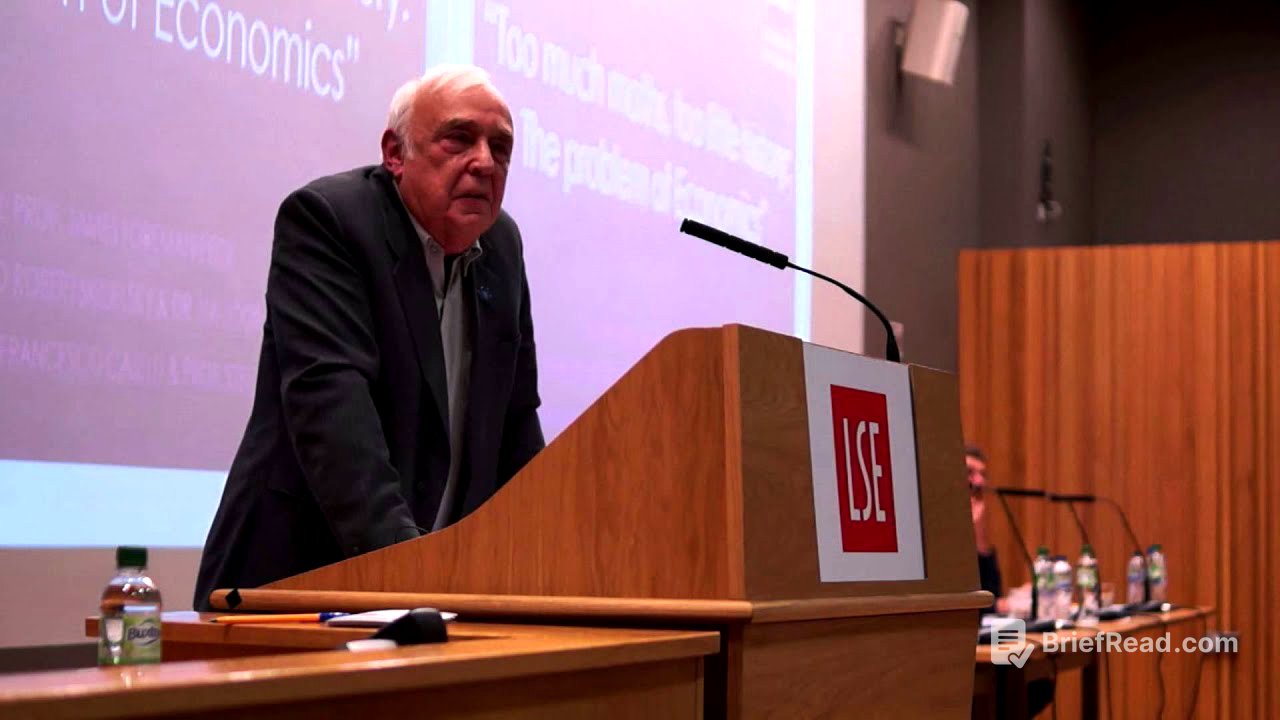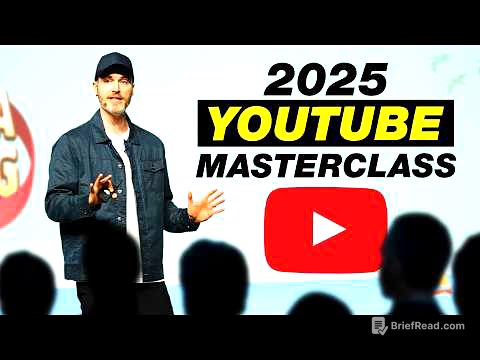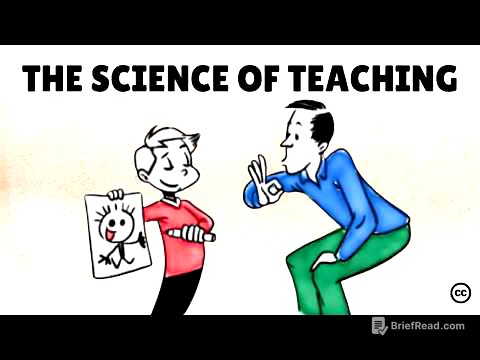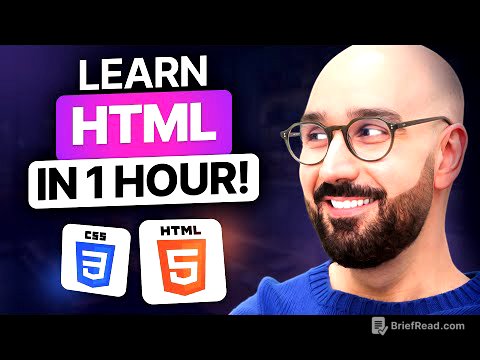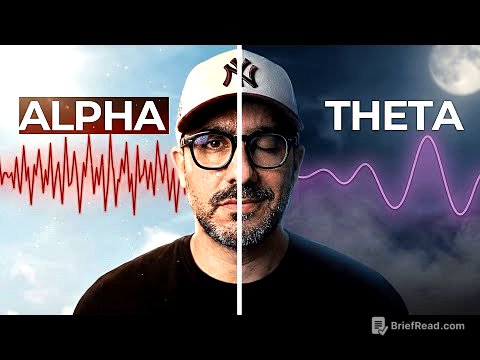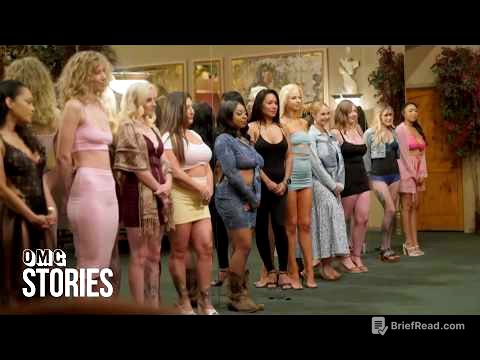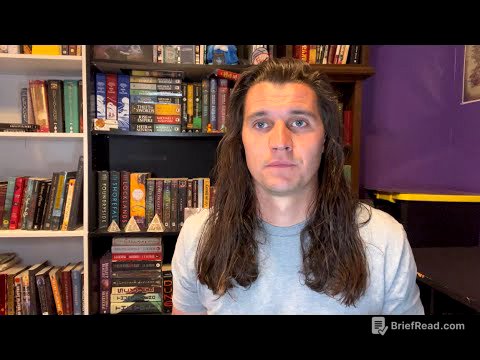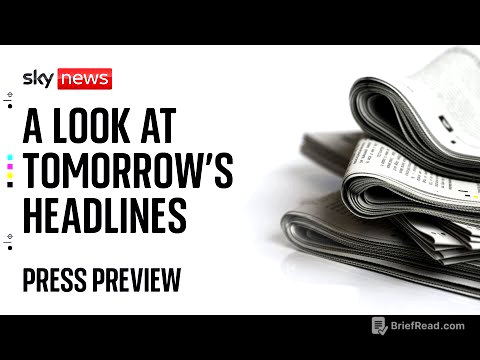TLDR;
This video features a debate hosted by the LSESU Economics Society, exploring the proposition that economics, as currently taught, relies too heavily on mathematics while neglecting the importance of history. The discussion covers the role of maths in economic modelling, the value of historical context, and the balance between theoretical and empirical approaches.
- Maths is often prioritised over historical context in economics education.
- Economic models should be reality-checked with historical understanding.
- A pluralistic approach, incorporating various methodologies, is essential for a comprehensive understanding of economics.
Introduction [0:00]
The speaker introduces the debate's central argument: economics relies too much on maths and too little on history. He poses the fundamental question of why people study economics, suggesting the goal is to understand how economies function. He contrasts maths and history as opposing epistemological approaches to achieving this understanding.
The Role of Maths in Economics [0:47]
Maths is used to generate provable propositions, but the complexity of social systems makes reliable proofs difficult to obtain. This leads to a "platonic view," where economists are tempted to see maths as a pathway to rigorous and elegant laws, akin to celestial mechanics. Paul Krugman noted that economists sometimes mistake beauty clad in impressive-sounding mathematics for truth. Economic models often prioritise convenient assumptions for solving equations, reflecting the values of the economist and potentially excluding other views. This can incentivise economists to make the real world fit their models, rather than the other way around.
The Role of History in Economics [4:32]
History serves as a reality check for economic propositions. Economic history, the history of economic thought, and political and social history are particularly suited for this purpose. However, these areas are often excluded or minimised in standard economics curricula, due to the belief that everything to be learned from history has already been incorporated into the latest textbooks. This belief stems from "physics envy," the desire for economics to be a hard science. The speaker quotes JB Say, who dismissed the study of past economic opinions as useless pedantry.
The Importance of Studying Economic Thought [7:26]
Studying the history of economic thought is crucial to understanding that important debates in economics have never been fully resolved and continue to affect contemporary discussions. Sanitising these debates through mainstream textbook accounts robs the subject of its richness and ability to illuminate reality. Knowledge of economic history can help economists avoid hubris and absolute confidence in their own school of thought. Economists should aim to understand a continually changing system, recognising that the truth of economic propositions depends on their context.
Contextualising Economic Theories [8:51]
The Keynesian Revolution arose from the circumstances of the Great Depression, and Friedman's monetarism was a reaction to the inflation of the 1970s. The marginalist revolution of the 1870s was an attempt to refute Marx's labour theory of value. Economic activity is embedded in social institutions, customs, beliefs, and attitudes. As time series data becomes longer, the likelihood of it remaining stationary decreases, making it difficult to draw reliable conclusions. History also reveals how economic ideas reflect power structures, such as financial theory reflecting the interests of the banking system.
A Pluralistic Approach to Economics [11:00]
Progress in economics is not a linear progression from particular to general theories. Instead, a "horses for courses" approach is advocated, choosing the economic tools appropriate to different problems and situations. Development economics, for example, requires relatively little maths, while forecasting supply and demand may require more maths. The banishing of history from economics curricula reflects a loss of pluralism and imagination, leading to intellectual arrogance among economists.
Professor Francesco Caselli's Perspective on Maths in Economics [13:53]
Professor Caselli discusses his use of maths in economics, starting with observations and puzzling facts. Economics, in many ways, is history, involving the interpretation of events and data to construct narratives. He builds verbal theories and then retells these stories using maths to identify inconsistencies or oversights in his reasoning. Maths serves as a thinking tool to catch mistakes, with verbal narratives being most important. He teaches economics without maths, relying on verbal explanations validated by prior mathematical checks.
Maths as a Tool for Dealing with Complexity [20:47]
Maths is valuable for dealing with the complexity of microeconomic systems, where numerous agents respond to economic shocks. Mathematical models, combined with computer simulations, can create narratives of economic responses. Maths is a critical tool in his toolkit, but not the only or main one.
Addressing Misconceptions About Economics [23:20]
Professor Caselli addresses misconceptions about economics, distinguishing between the use of maths and other potential shortcomings of the field. He argues that problems with the assumptions of economics, such as extreme rationality, are separate from the methodology of mathematics. He also refutes the idea that there is one overarching model in economics, emphasising that different approaches are tailored to specific questions. He believes there is an enormous amount of history in economics, citing examples of PhD theses focused on historical topics.
Professor Ha-Joon Chang's Argument for History in Economics [28:42]
Professor Chang argues that economists need to study history to understand the present, question assumptions, and see the limits of economic theory. He suggests that there's an intellectual hierarchy in economics where abstract theories are valued more than real-world applications. He lists five reasons why history is essential: understanding the present, recognising the impact of historical knowledge on decisions, questioning assumptions, seeing the limits of economic theory, and fulfilling a moral duty to minimise live experiments with people.
Practical Implications and Curriculum [44:10]
Professor Chang discusses the practical side of incorporating history into the economics curriculum. He argues that if history is truly valued, it must be taught systematically. He notes that the current undergraduate teaching program is designed for students going into graduate studies, while most students will work in the private sector or international organisations. He suggests the curriculum is too abstract and not related enough to the real world.
Professor Steve Pischke's Counter-Argument [46:54]
Professor Pischke presents data showing a decline in theoretical publications and an increase in empirical work in top economics journals. He argues that economics has moved away from pure modelling and towards evidence-based analysis. He provides examples of influential empirical studies, such as research on racial discrimination in hiring and the effects of minimum wage. He suggests that economics is fairly applied, in tune with the world, and policy-relevant.
Improving Economics Teaching and the Role of Empirical Work [55:31]
Professor Pischke believes the image of economics is poor because the teaching is not as good as the research, with too much focus on maths and too little empirical context. He agrees there should be fewer models and less maths on the margin, but not wholesale. He supports more history and interaction with other social sciences. He is skeptical that these changes will lead to a grand transformation of economics. He disagrees with the idea that empirical work is not mathematical, arguing that econometrics has yielded extraordinary insights.
Discussion on Undergraduate Curriculum and Empirical Approaches [58:30]
The panel discusses the distinction between the undergraduate curriculum and economic research. It's suggested that the current curriculum is designed for graduate studies, making it too abstract for most students. There's disagreement on whether empirical work is confined to mathematical techniques, with some arguing for the value of non-mathematical historical analysis.
Audience Q&A: Policymaking and the Role of Economics [1:04:28]
An audience member questions the centrality of economics to policymaking, particularly in technical decisions like setting interest rates. The panel discusses the importance of theory and data in informing such decisions, as well as the role of judgment and knowledge of economic history.
Audience Q&A: Criticisms of Current Economics Education [1:08:24]
A graduate student criticises the excessive reliance on maths in economics education, calling for the inclusion of other disciplines like psychology, politics, history, and sociology. Another audience member argues that the constraint of quantitative thinking limits the assumptions used in economic modelling.
Audience Q&A: Theoretical Pluralism and Labour Market Expectations [1:12:03]
The panel discusses whether introducing greater theoretical pluralism and history into economics would affect what employers expect from graduates. It's suggested that employers may value mathematical skills, but that economists need to offer more than just maths to compete with mathematicians and other professionals.
Audience Q&A: Development Economics and Governance [1:15:29]
An audience member challenges the assertion that development economics needs little maths because the problem is governance. The panel discusses the importance of evidence-based analysis and the need to test models. It's argued that what counts as evidence depends on the theory being used.
Audience Q&A: Empirics and Data [1:23:59]
The panel discusses the nature of empirics and data, questioning whether data is given or a historical construct. It's suggested that economics starts with theory and ends with theory, and that many economic theories did not arise from direct observation.
Closing Statements: Rebuttals and Summaries [1:28:20]
The panel offers closing statements, rebutting points and summarising key arguments. It's argued that behavioural economics, a major change in the field, arose from empirical observations. The panel reiterates that economics is not a theory-obsessed discipline, but is driven by observation and a desire to explain facts. The proposition is reiterated that there is too much maths and too little history in economics, and that a division of labour is needed, with some economists focusing on maths, others on econometrics, and others on historical analysis.
